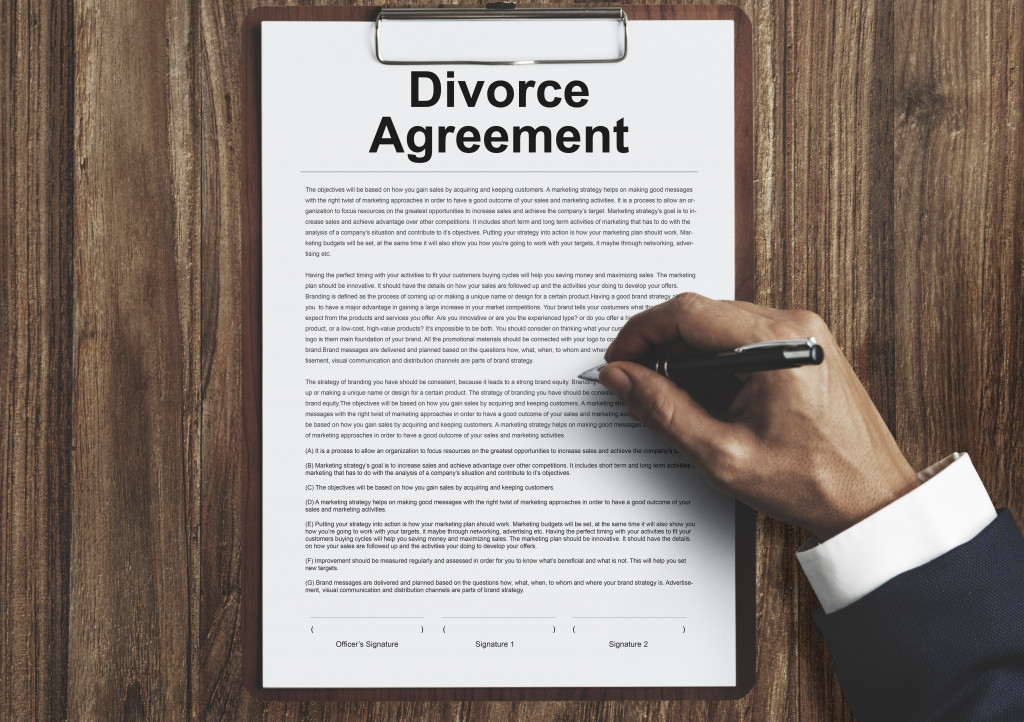There are many reasons why couples choose to end a marriage, and there is more than one way to make the dissolution legal. Here are the differences between a legal separation, divorce, and annulment, and how couples can choose between the three.
Legal Separation
A legal separation, true to its name, is a judicially and legally recognized separation between spouses. What makes it different from divorce is that it does not necessarily end the marriage by law, and both parties are not allowed to re-marry or enter into a domestic partnership with a new person. In most states, however, when spouses choose to simply live apart or agree to separate for a given period, it does not automatically constitute a legal separation. But some states do take into consideration the date of the permanent separation instead of the date of the legal separation when trying to determine the duration of the marriage when attempting to divide marital assets and possessions.
Divorce
A divorce, on the other hand, is a legal decree that ends a marriage between two parties. The divorce proceedings are when a court of law addresses the issues of division of the assets, custody of the children (and pets, in many cases), and spousal support. When a divorce is finalized, the former spouses no longer have a legal duty to one another, permanently ending the legal ties that bind them, and can remarry or enter into another domestic partnership.
There two kids of divorce that are recognized: “no-fault” divorce and “fault-based” divorce. Here are the sub-categories under these two bigger kinds:
No-Fault Divorce
Every state in America offers some form of no-fault divorce. Here are three commonly used grounds for this kind of divorce:
- Incompatibility
- Irreconcilable differences
- Irretrievable breakdown
These three terms are formal and legal ways of saying that the spouses have experienced irreparable differences that have broken down the marriage and, as its name suggests, are impossible to repair and reconcile. There is no guilty party in the marriage—it’s simply that one or both sides just want to end it. This kind of divorce is very common and since it doesn’t require a burden of proof, they usually tend to go much quicker and are generally less expensive than other forms of divorce.
Fault-Based Divorce
A fault-based divorce, on the other hand, is a case where one or both spouses are seeking a dissolution of the marriage because of a perceived wrong during its duration. It can include abuse, abandonment, adultery, domestic violence, and drug, alcohol, and other substance abuse. Spouses who choose to file for a fault-based divorce usually do so to avoid a required waiting period for the separation (especially if staying in the marriage can result in harm, as in cases of abuse) or to influence the court in regard to child support and custody, spousal support and alimony, and division of the assets.
Annulment
What makes an annulment different from legal separation and divorce is that once it is obtained, it’s as if the marriage never happened in the first place. One example is that when signing forms, a person who has gone through an annulment can choose “single” instead of “divorced.” However, when former spouses had children before the annulment, those kids would still be considered legitimate since they were conceived and born during the marriage. Another difference is that courts require more legal grounds before spouses can file for an annulment, the details of which vary from state-to-state, but here are some of the more typical legally allowable reasons:
- When a spouse is physically incapable of having children and lied about it—it can be considered fraud
- There was incest in the marriage
- Bigamy, which is when one party was already married before marrying their current spouse
- If the marriage was a result of force
- When one or both parties were minors when the marriage took place
- The marriage took place when one or more parties were intoxicated
You Have Options
Separating from a spouse is a difficult decision, which is why it’s important that you know your options and that help is available. Don’t hesitate to consult with reliable and reputable divorce lawyers who can help you go through your options and can help you find the best possible deal for you and your children. You don’t have to go through this difficult time alone.
